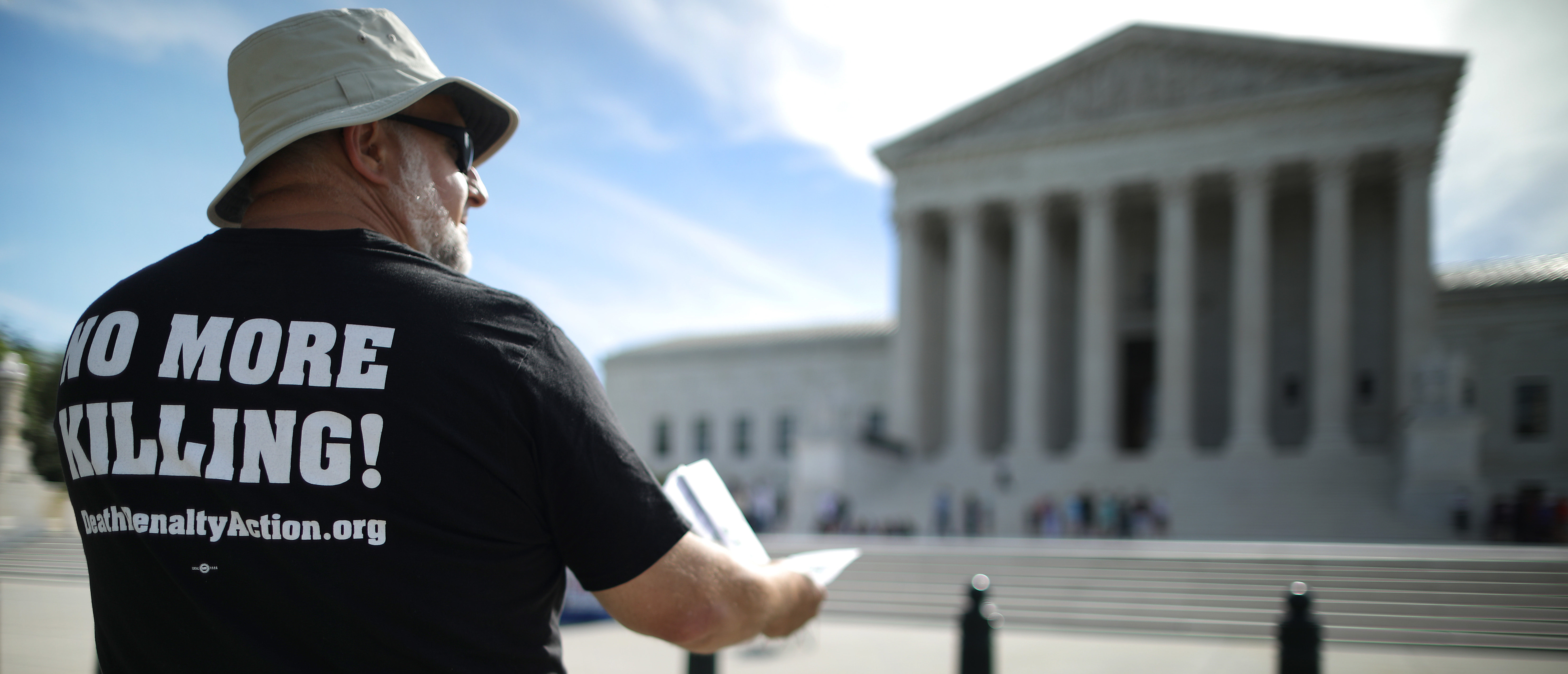The Supreme Court declined Monday to hear an appeals case challenging the Trump administration on its decision to restart executions of federal inmates on death row.
The decision to reject the legal challenge clears the way for the Department of Justice (DOJ) to authorize federal executions, the first of which is scheduled for July 13, the Associated Press reported. It would mark the first time the federal government used the death penalty since 2003.
New: SCOTUS will not step in to delay AG Barr’s plan to resume federal executions by lethal injection next month. The death row inmates have a new preliminary injunction motion pending before the district court. pic.twitter.com/Y9Okm8gSGn
— Zoe Tillman (@ZoeTillman) June 29, 2020
Attorney General William Barr instructed the Bureau of Prisons to schedule the executions of four death row inmates, all of whom were convicted of murdering children, in an order given in July 2019. The decision ended an informal moratorium on federal executions, which are relatively rare and were out of practice for over a decade.
A district judge blocked the executions last year, ruling that the proposed lethal injection procedure violated the 1994 Federal Death Penalty Act, but that ruling was overturned in a 2-to-1 decision by the U.S. Court of Appeals for the D.C. Circuit earlier this year, The Washington Post reported.
The Supreme Court initially deferred to the appeals court as well, declining to hear a Trump administration request to move forward with the executions in December 2019. By refusing to hear Monday’s appeals case from the death row inmates, the Supreme Court upheld the ruling from the lower court.

The Abolitionist Action Committee protests the death penalty outside the Supreme Court July 01, 2019 (Chip Somodevilla/Getty Images)
The DOJ had recommended the Supreme Court not to take up the appeals case, which would have further delayed the scheduled executions for several more months, NBC News reported. (RELATED: Support For The Death Penalty Shrinks To All-Time Low, According To New Poll)
“The four murderers whose executions are scheduled today have received full and fair proceedings under our Constitution and laws. We owe it to the victims of these horrific crimes, and to the families left behind, to carry forward the sentence imposed by our justice system,” Barr said in a statement earlier this month.
Prison officials are expected to move forward with the July 13 execution of Daniel Lee, a white supremacist who murdered a family of three in Arkansas. The other three inmates cleared for execution are Wesley Ira Purkey from Kansas, Dustin Lee Honken from Iowa, and Keith Dwayne Nelson from Kansas, according to the Associated Press.


